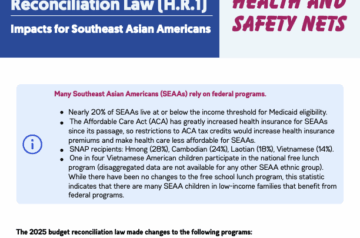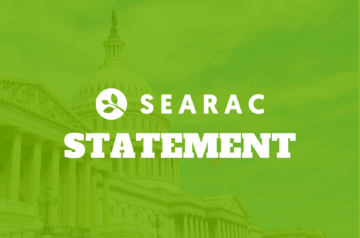After a week of negotiations, Congressional leaders passed a bipartisan emergency relief package today providing additional funding for hospitals and community health centers, food banks and food stamps, unemployment benefits, federal loan programs, temporary student loan relief, and billions in $1,200 payments to families struggling to stay afloat during the COVID-19 pandemic. The president is expected to sign this into law later today. While the stabilizers included in the bill are critical to ensuring the economic and health security of Americans across the country, the bill unfortunately:
- Excludes a number of immigrant communities from benefitting from a number of these programs due to their status,
- Provides the Secretary of Education discretionary powers to waive certain federal education requirements, which would potentially harm the education integrity of some of our most vulnerable students,
- Does nothing to protect against a Trump Administration-supported lawsuit seeking to dismantle the Affordable Care Act (ACA), which has expanded healthcare access across many communities, and
- Does not provide support for language access or culturally responsive programs that aid vulnerable communities.
“While this bill is a crucial first step in responding to the urgent needs of struggling elders and families, we must continue advocating for additional support for all people, including immigrants who have been excluded this time,” said Quyen Dinh, executive director of SEARAC. “We also urge lawmakers to protect and expand culturally competent health access and continue prioritizing support for students, educators, and schools. Systemic change is needed to ensure true equity for everyone, well beyond this immediate global health emergency. Southeast Asian Americans are no strangers to hardship, calamity, and economic and health insecurity. We are resilient. And we will continue mobilizing together long after we have survived this crisis.”



